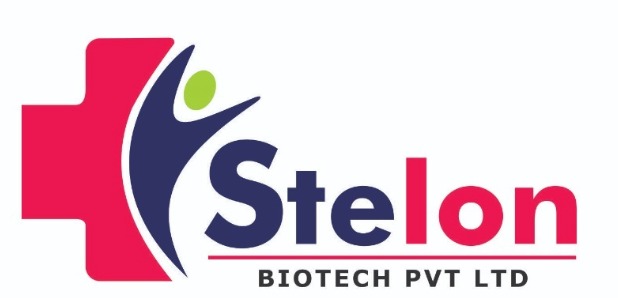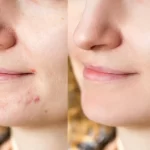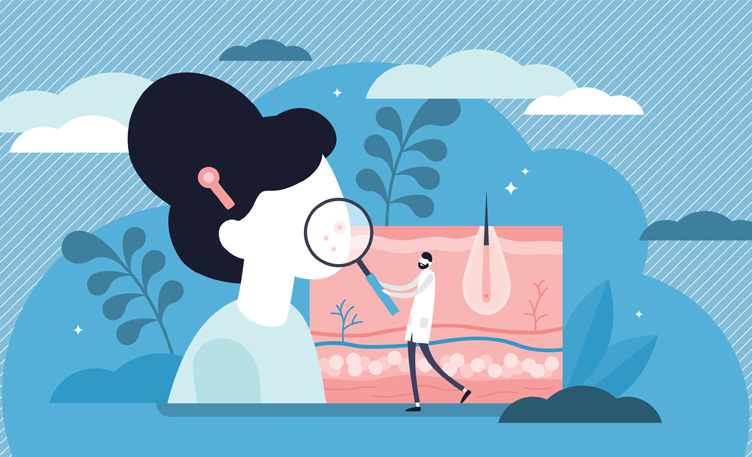How to prevent Acne: 10 Tips To Avoid Acne & Pimples
How to prevent Acne? – A common skin ailment called acne is caused by blocked hair follicles underneath the skin’s surface. Hair follicles are clogged with oil and dead skin cells which results in the outbreak of lesions, commonly called pimples or zits. Symptoms of acne are blackheads, pus-filled pimples, large, inflamed red, and tender bumps. It is a very ordinary condition in teenagers and young adults. Acne scar creams include topical creams and cleansers, as well as prescription antibiotics.

Types of Acne
Acnes are of several types, which are mentioned below:
- Fungal Acne: Fungal acne is caused when hair follicles become infected with a fungus called Malassezia yeast or (Pityrosporum folliculitis). It forms a cluster of small, itchy, red bumps (papules) on the skin.
- Cystic Acne: This inflammatory acne causes painful pus-filled pimples underneath the skin. It left scars on the face.
- Hormonal Acne: Hormonal acne develops when hormonal changes increase the amount of oil the skin produces. This oil interacts with bacteria on the pores of the skin where hair grows (hair follicles) and results in acne.
- Nodular Acne: This is the worst and most severe type of acne. It causes a hard lump deep under the skin and appears on the skin as red bumps. The nodules can last for weeks and even months causing scars.
What Causes Acne?
Generally, Acne occurs with the build-up of dead skin cells, oil, and other substances that block pores by getting stuck into the hair follicles in the skin.
Many reasons that, trigger acne on the face or over the body. These are:
- Air Pollution, excessive sunlight, humidity
- Using oily or greasy makeup, personal care products
- Stress, or hormonal changes
- Picking and popping your acne
10 Tips To Avoid Pimples & Acne
If you have mild acne, you can start an at-home skincare routine to help your acne go away by:
- Wash your skin at least twice daily with water and a gentle cleanser. Refrain from harsh scrubbing.
- Avoid using oil-based skin care products with alcohol, astringents, toners, and exfoliants that can irritate your skin.
- Do remove your makeup at the end of the day or before going to bed.
- Use an oil-free moisturizer to apply to your skin after cleansing.
- Avoid popping, picking, or squeezing your acne, as it can leave acne scars on the skin.
- Regular Shampoo and condition your hair, especially if it is oily and rests on your skin as the hair clogs the skin pores and forms acne on your face.
- Food plays an important role when it comes to controlling acne and pimples on the face and body. Avoid eating junk food if you want clear skin.
- Keeping make-up for long and even sleep keeping makeup leads to pores clogging and acne.
- Stress and pollution are the leading causes of acne and pimples in the 20s. Take care of the face while going outside by applying sunscreen and covering it with a cloth.
- Picking and popping of the pimples cause acne marks and more breakouts.
- Drinking plenty of water helps clear your skin.
If your at-home skincare routine isn’t effective at treating acne, do visit a dermatologist.
What are the medical measures to prevent Acne?
Topical Acne Medications
The Dermatologist recommended the best acne treatment products in India. This medication can be directly applied to the skin as it comes in the form of creams, gels, lotions, and moisturizers. This product contains ingredients such as
- Benzoyl peroxide: Benzoyl peroxide works as an antiseptic by reducing the number of bacteria on the surface of the skin. It is considered the first treatment for mild to moderate acne.
- Salicylic acid: Salicylic acid works by breaking down and dissolving excess oil, gently exfoliating the skin to remove dead skin cells, and reducing inflammation to help unclog blocked skin pores to allow pimples to shrink.
- Adapalene: Adapalene changes how your skin cells grow and shed so they do not clog pores or form acne. This is the best acne medication for those who have sensitive skin.
- Retinoids: Topical retinoids work by removing dead skin cells from the surface of the skin (exfoliating), which helps prevent them from building up the acne on the skin. By helping in fading acne scars.
- Antibiotics: Antibiotics targeting acne-causing bacteria in and around the follicles to reduce inflammation and decrease sebum production. More precisely, propionibacterium acnes, often known as C acnes, is a kind of skin bacteria that oral antibiotics help reduce or eradicate.
Oral Acne Medications
Oral acne medications are pills that can be taken by mouth to clear your acne. It includes:
- Antibiotics: Some dermatologists prescribe antibiotics as they can reduce the amount of bacteria on your skin which are mainly responsible for forming acne.
- Doxycycline: Doxycycline is a common antibiotic that dermatologists prescribe for acne. It kills acne-causing bacteria and soothes inflammation.
- Isotretinoin: It is considered the most effective acne treatment and can help prevent acne scars. After completing an isotretinoin treatment session (usually lasting 5-8 months), about 4 out of 5 people have long-term improvement in their acne.
- Combined oral contraceptive pill: These pills contain both estrogen and progesterone that lowers the amount of androgens in the body. It helps in reducing sebum in severe acne.
Acne Therapies
If topical or oral medications don’t work well for your acne or acne scars, the doctor may recommend different acne treatments to clear your skin, including:
- Steroids: Steroid therapy is used to treat severe acne with injections into large nodules, to reduce inflammation.
- Lasers: Lasers and light therapy treat acne scars, by destroying the scar tissue on the top layer of the skin and encouraging the growth of new healthy skin cells to replace scar tissue.
At last, we hope you get all the information regarding preventing acne and tips to reduce acne.




